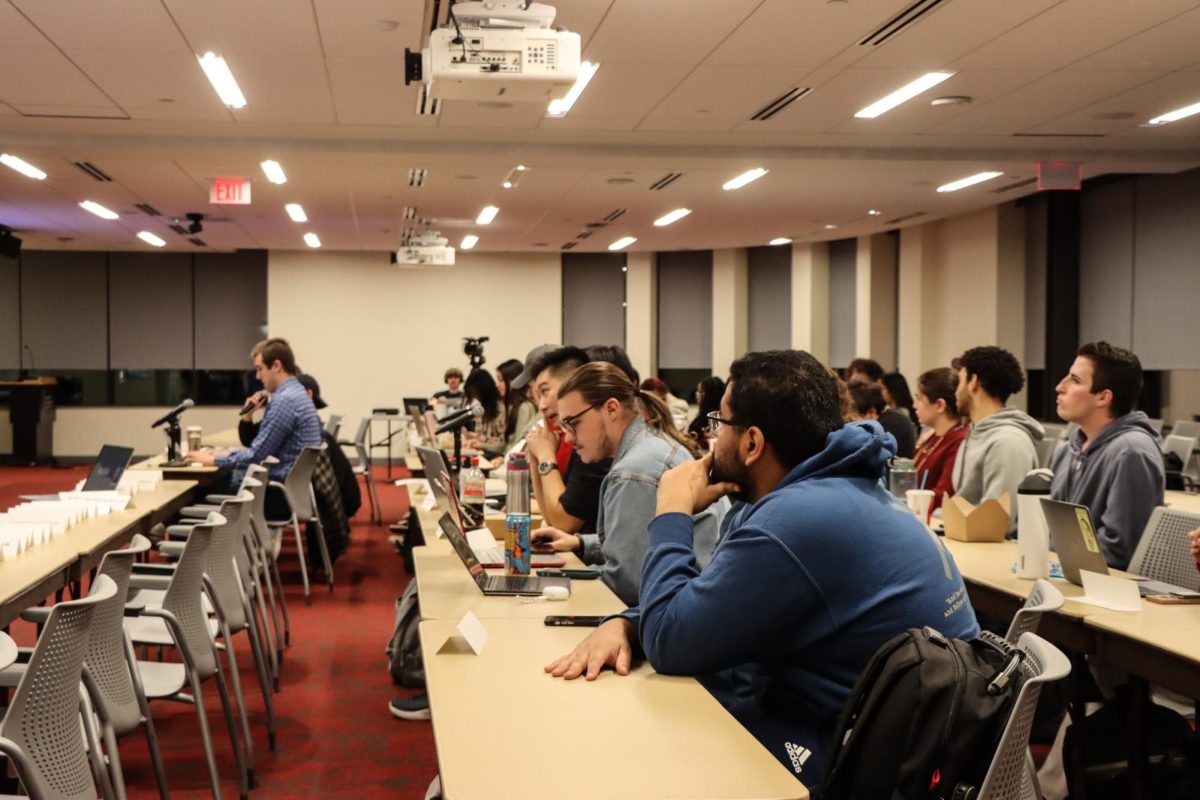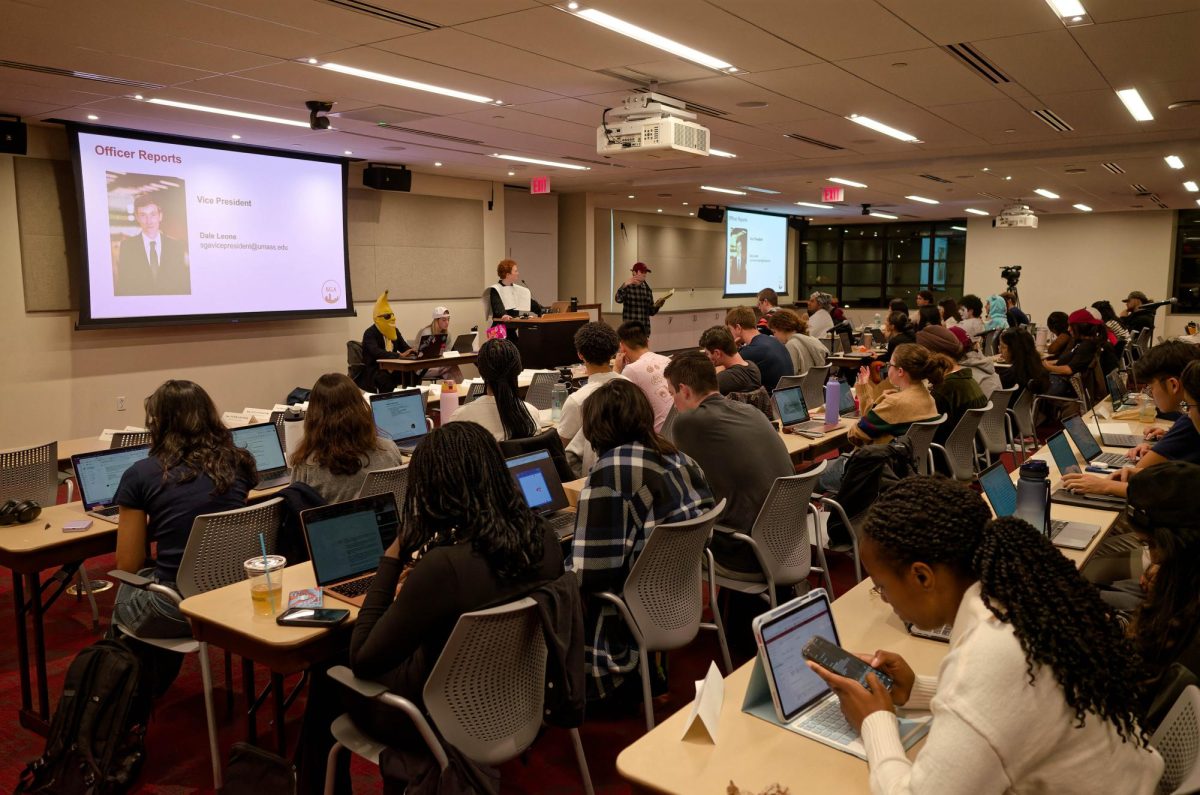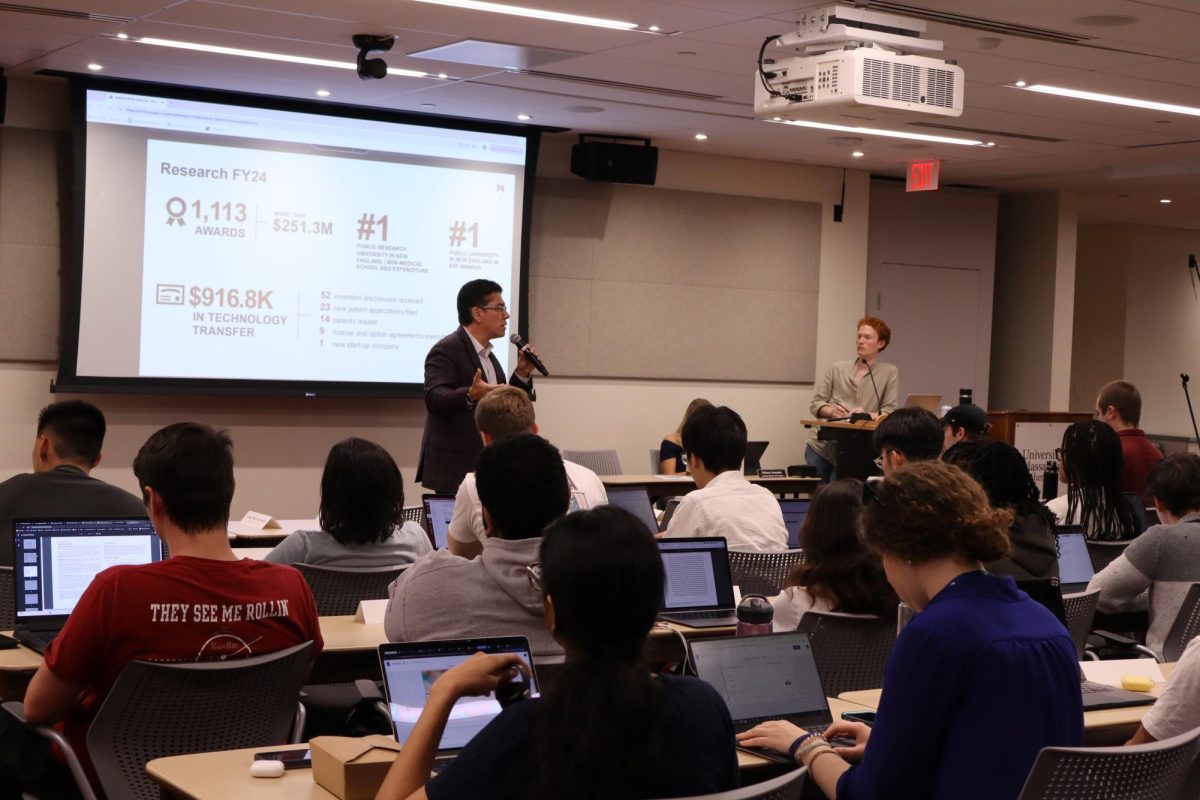
As the semester begins, so does student government; the University of Massachusetts Student Government’s 1665th regular meeting was held on Monday, covering topics from length of classes to the recently cancelled electronic dance music concerts.
Guest speaker Charles J. DiMare of the Student Legal Services Office began this meeting with an overview of the University of Massachusetts Trustee Policy on University governance. DiMare emphasized the significance of student involvement with the law, specifically regarding the responsibilities and duties among the university.
“You have a level authority,” DiMare said to members of student government here at the University. “You have the absolute authority to participate in academic matters, initiate recommendations and establish policy on campus.”
Student Government Association President Zac Broughton also brought a number of significant topics to the attention of the Student Senate, including the development of a search committee for a Vice Chancellor of Student Affairs, for which two representatives are to be chosen.
Broughton also discussed the possibility of changing UMass’ academic calendar, a change he is looking to initiate beginning in the academic year starting in fall 2014. Recommended changes include converting the Monday/Wednesday/Friday 50 minute class schedule to Monday/Wednesday or Wednesday/Friday 75 minute class times.
This proposed change is intended to prevent crowding within classes and to open up more class options for students. Broughton also brought up the suggestion of enforcing an 8:30 a.m. start to classes on the Tuesday/Thursday schedule as opposed to the current 8:00 a.m. start time.
SGA Vice President Emily Hajjar also brought a number of issues to the attention of the SGA. As a sitting member of the University Health Services Advising Council, Hajjar mentioned that the Advising Council is deciding on the addition of three more physicians and two more nurse practitioners to cut down on wait time at the UHS walk-in clinic.
The UHS Advising Council is also considering opening another section of UHS to provide more services to students.
Chris Earls, an area governor for the Commonwealth Honors College Residential Community, also spoke regarding the budget of the CHCRC. He proposed an effort to improve many of the issues that have arisen since the opening of this new facility.
A majority of the meeting also focused on the cancellation of Massachusetts Electronic Dance Music Community sponsored events at the Mullins Center.
EDMC-related events have been tied to a number of serious incidents involving substance abuse that have caused injuries and fatalities throughout the nation.
Students, senators and other members of the UMass community held varied and opposing opinions regarding this topic. Both sides of the spectrum were represented at Monday’s meeting.
Multiple speakers addressed the sadness and disappointment that arose from events like this being canceled due to the threat of the drug known as, Molly, which has had sometimes fatal effects on college-aged students across the nation. Speaker Sionan Barrett noted, “The cost of a life does not have a value.”
Other members of the Senate spoke against the cancellation of the EDM concerts on the basis that it took away from events offered to students. They argued that the decision was made by the University, while many students found UMass’ authority to cancel this event unfair.
Broughton disagreed with the cancellation of these events, despite the possible dangers associated with EDM events. Much of the controversy arose from the messages sent by artists at EDM events, whose lyrics relate to serious drug and alcohol abuse.
“If we held every musical artist to the standard of the lyrics they sang, there would be very few artists performing,” Broughton said. He stated that he does not support the cancellation of events like this based on the fact that cancellation violates the rights of students.
Despite the controversy, all members of the Student Senate can agree that education regarding severe drug abuse is essential.
“There was high pressure to put forth education had the event not been cancelled,” Broughton said. “Regardless, I am still in favor of the education aspect. Right now the main concern is spreading the prevention of Molly.”
Broughton added, “We can all sleep better tonight knowing students won’t die tonight from taking Molly at a school event.”
Katrina Borofski can be reached at [email protected].


















